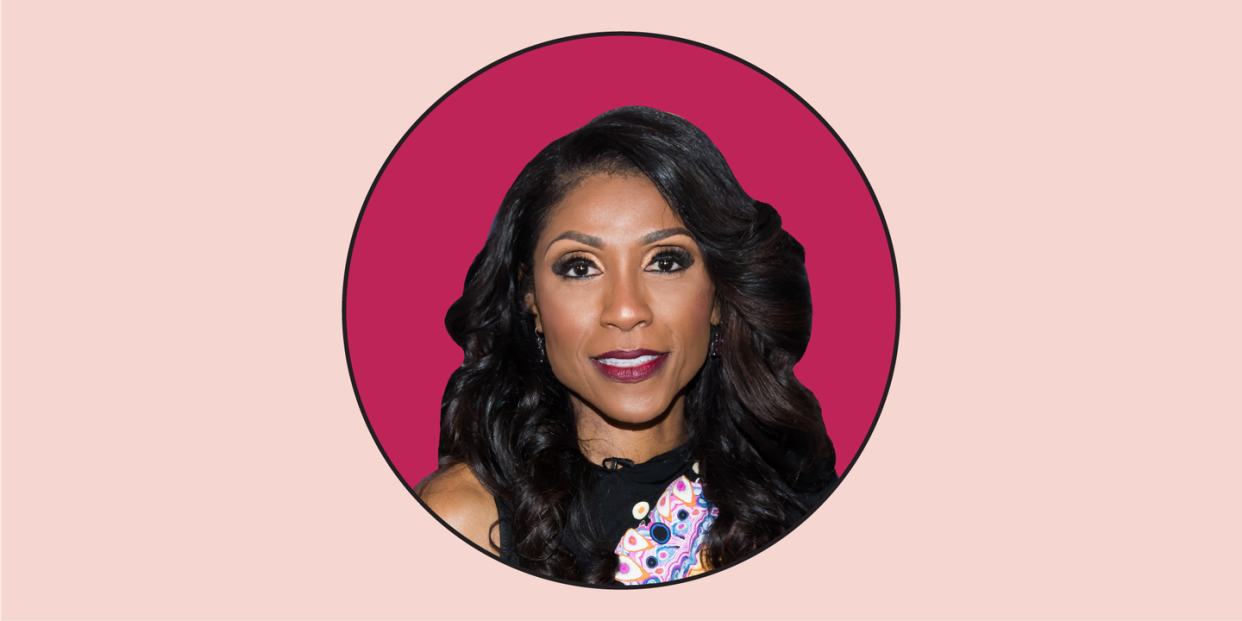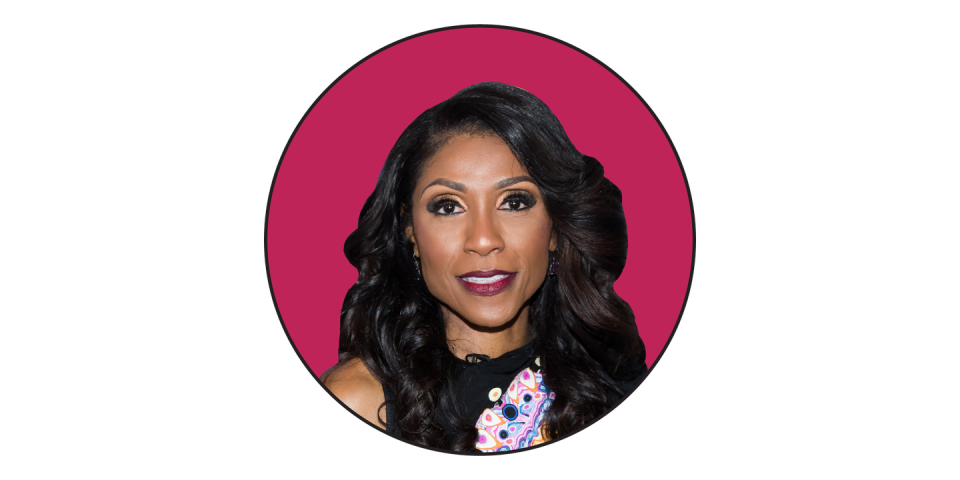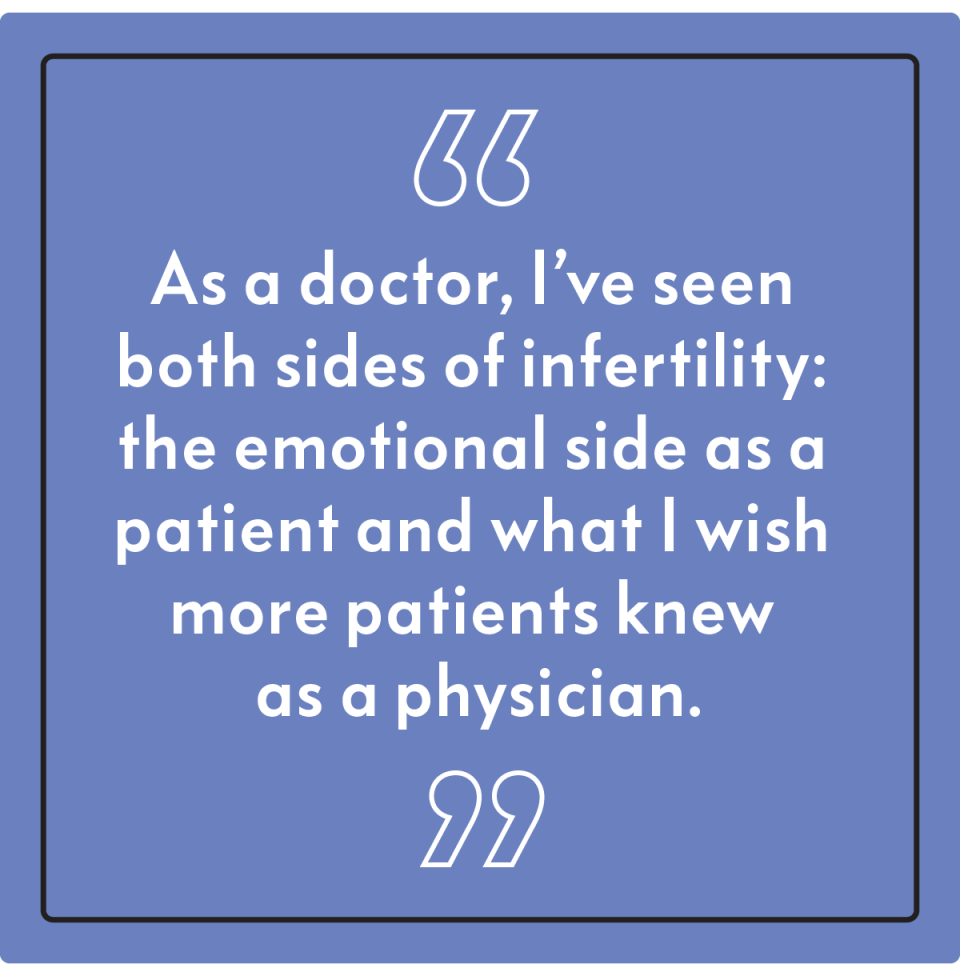Married To Medicine's Dr. Jackie Opens Up About Her Infertility Struggles


Jacqueline Walters-better known to fans of the reality show Married to Medicine as Dr. Jackie-has dealt with both sides of infertility, as a physician and as a breast cancer survivor who’s struggled to conceive. Here, she opens up about her journey.
A lot of people ask me why I decided to do a reality show and be so open about my story. I thought that if I shared with women that this could happen to me-a doctor, someone who knows probably more about infertility than most people-then it can happen to anybody. So I always try to use my storyline on Married to Medicine to educate people. Because what better person is there to tell you about infertility than the person who treats it-and has also dealt with infertility unsuccessfully.
As physicians, we call the stage after the age of 35 "advanced maternal age." That means that the chances of getting pregnant begin to lower tremendously every month. So you may go from, say, about a 20-25 percent chance of getting pregnant each year before 35 to, by the age of 40, less than a 10 percent chance of getting pregnant.
I married at 38 and started trying to get pregnant at 39. And I did actually get pregnant! And then...I found out I had breast cancer. Chemotherapy and radiation led to a miscarriage at six months. The doctors were clear with me that I was never going to get pregnant naturally after that. To this day, I'm still not sure if the miscarriage was caused by age or chemically induced because of the chemo and radiation.
I know a lot of women want to see their own genetics in their child, which is okay. But there are so many options. There’s adoption, and also getting an egg donor with your partner’s sperm, which I would’ve explored but couldn’t because I was simultaneously dealing with breast cancer.
I was pretty limited in what I could and couldn't do if I wanted to carry a child, but I did try everything: medications, acupuncture, herbal teas-anything I could think of within the constraints of my breast cancer, which went into remission and then came back.
I would love to tell you that I never felt uncomfortable talking about what I was going through. But there is something about not being able to have a baby that makes a woman embarrassed to talk about. I can't explain it, because of course deep down, I knew it wasn't because I did anything wrong. I just so happened to get married later in life, and then I got cancer. I couldn’t help either of those things.
Still, it was hard to open up. And being on a reality show made it even more difficult-there were below-the-belt jabs from co-stars and viewers like “Maybe that happened to you because you did something in your past.” I’ve been judged, whether people realized they were doing it or not.
A post shared by Dr. Jackie Walters (@therealdrjackie) on Sep 30, 2018 at 10:43am PDT
There is definitely a stigma in the Black community specifically. Many Black women are not as educated about our health as I would like us to be. For example, growing up in my community in southern Mississippi, our mamas didn't talk to us about such things. Everything was kind of hush-hush, and nobody told you anything about your body.
If you had any problems at all, it was almost something to feel shameful about. I've felt shamed into thinking I may have somehow caused the problem. I think a lot of that comes from religion. Many African American communities are rooted in spirituality, and if you’re a praying person, you might just pray that God’s going to fix it instead of seeking help or care. So in African American culture, the concept of egg freezing and in vitro fertilization is often seen as unnatural. It’s insinuated that God has plan, and having a baby will happen when it's time. That belief system makes many of us not as aggressive about seeking treatment.
For me, it’s been a lot easier share all of this with family and friends and colleagues. The hardest part is explaining it to a stranger or someone new that I meet who asks about my children. Then I have to find the words to say "I can't have them." It’s complicated and emotional and I don’t have a simple medical diagnosis to explain it away.

I’m 59 now. As a doctor, I’ve seen both sides: the emotional side as a patient and what I wish more patients knew as a physician. I always recommend that women do multiple consultations. When you're dealing with any major health issue, I suggest talking to at least two doctors so that you can hear the what, when, where and why from multiple perspectives and be okay with it.
Infertility is not something to be ashamed of. If you're going through it, you should remember: You didn't do anything to cause this, and there are options available out there. But please do be informed and do your research. And don’t be afraid to be open and honest; talk to other women, talk to your doctor.
Even if you have to sit with a therapist and get some counseling, do everything in your power so that if you do come to a place where you know carrying a child is not going to happen, you'll be at peace. But remember: Everyone's journey is different, and there's no one right way to do it.
More From Our Black Women And Infertility Package
('You Might Also Like',)

